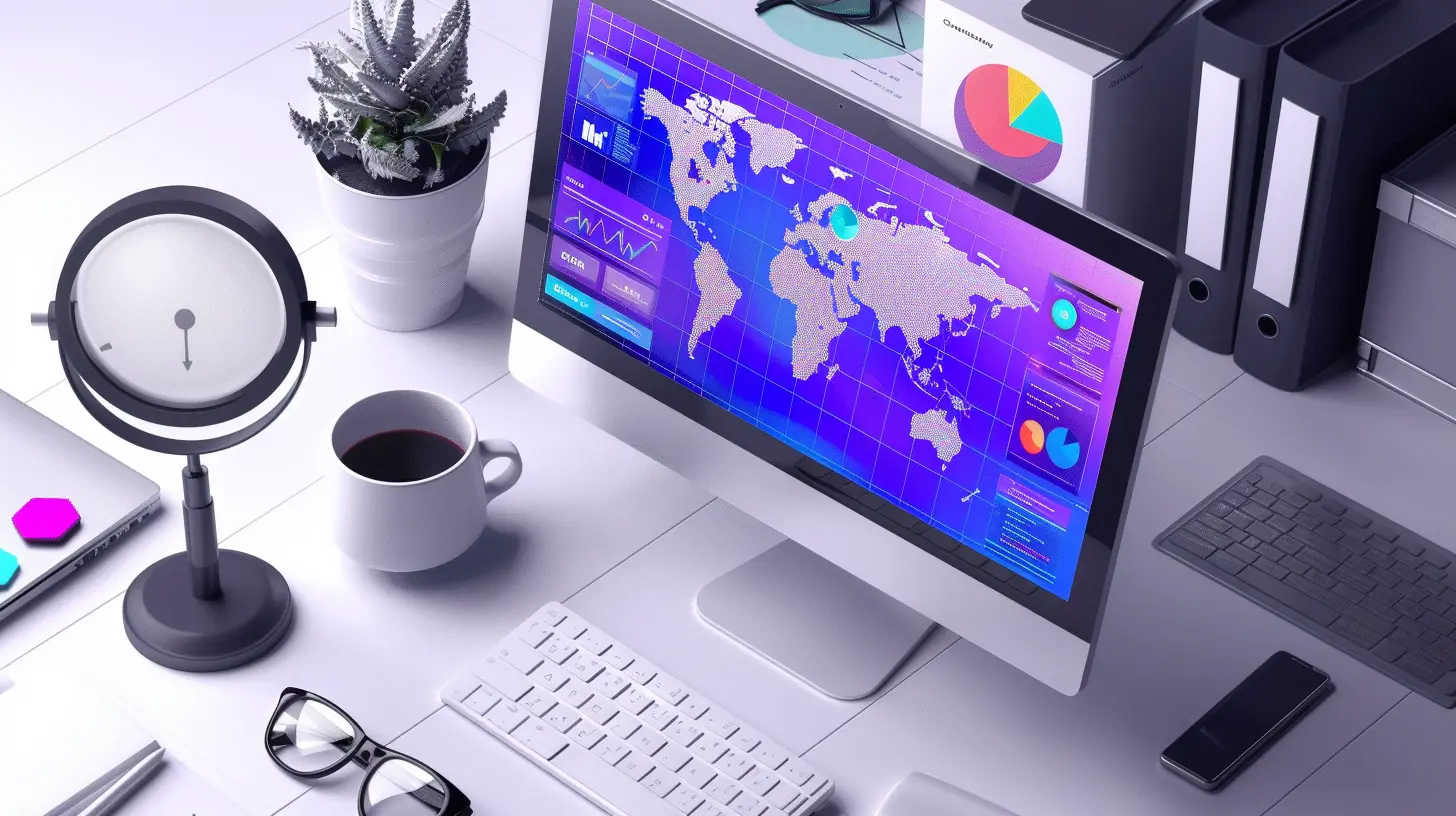Data Privacy Concerns in the World of Analytics
11 October 2025
In the digital age, data is like oil — valuable, powerful, and often messy when spilled. We live in a world where every click, swipe, and scroll adds to a massive ocean of data. While analytics helps businesses fine-tune strategies, improve user experiences, and innovate faster, there's a darker side to all this number crunching: data privacy.
If you've ever wondered whether your personal information is truly safe in the hands of tech giants, you're not alone. Let's dig deep into why data privacy is such a huge deal in the world of analytics — and what it means for all of us.
The Analytics Boom: A Double-Edged Sword
Analytics has evolved at warp speed. From simple spreadsheets to AI-driven insights, it's reshaping how companies operate. Retailers track shopping habits, health apps monitor your heartbeat, and social media platforms know what you'll "like" before you do. But here's the catch — all this insight comes from user data, your data.The Good Side
Sure, analytics can be a game-changer. Think personalized recommendations on Netflix, targeted ads that actually make sense, or wearables that help you stay fit. Companies can tailor experiences that add real value — for both you and them.The Not-So-Good Side
But where do we draw the line? The same tools that personalize your online world can also invade your privacy. When your personal data is harvested without consent or used in ways you never signed up for, it starts to feel a bit like surveillance.
What Exactly Is Data Privacy?
Let’s break it down. Data privacy is all about how your personal information is collected, used, stored, and shared. It’s your digital fingerprint, and you have the right to control who sees it and how it’s used.Think of privacy like a diary. You might be okay sharing parts of it with close friends—say, your favorite movies or hobbies. But you’d probably feel uncomfortable if someone read the entire thing without asking. That’s what happens when companies mishandle data.
The Core Concerns: Why Should You Care?
If you’re not losing sleep over data privacy, maybe you should be. Here are some reasons why this topic deserves your attention.1. Lack of Transparency
Most companies collect data behind long, boring privacy policies filled with legal jargon. Honestly, when was the last time you read one? Exactly. The problem is, users often have zero idea what information is being collected or how it’s being used.Analytics platforms can track everything from your browsing history to your location — sometimes even when you're not actively using an app. Creepy? Definitely.
2. Data Misuse and Breaches
We’ve seen some colossal data breaches in recent years — Facebook, Equifax, Marriott — exposing millions of records. Once your data slips through the cracks, there's no getting it back. It can be sold on the dark web, used for identity theft, or manipulated to influence public opinion.Analytics tools can unwittingly (or deliberately) become vectors for this misuse. The more data collected, the bigger the target.
3. Inference and Profiling
This is where it gets a little Black Mirror. Advanced analytics can infer sensitive info about you — like your sexual orientation, religious beliefs, or mental health status — even if you never shared that directly.By analyzing patterns and behaviors, algorithms paint a scarily accurate picture of who you are. And no, you didn’t consent to be profiled like this.
4. Consent Is Often a Sham
You know the annoying cookie pop-ups on websites? Clicking “accept” might seem harmless, but it often means you're handing over a lot more than cookies. Many consent mechanisms are designed to confuse or mislead users into giving up more data than they'd like.
The Business Perspective: Caught Between Innovation and Ethics
From a company’s point of view, data is gold. It helps shape decisions, cut costs, and beat the competition. But there's growing pressure to balance innovation with responsibility.The Temptation to Over-Collect
With analytics tools becoming more sophisticated, it's tempting for businesses to collect everything just in case. More data means better insights, right? Not always. This "hoarder" mentality can backfire if the business faces backlash over privacy issues or gets hit by a data breach.Reputational Risks
Consumers today are more privacy-conscious than ever. One misstep can destroy brand trust overnight. Even giants like Apple and Google have faced intense scrutiny over how they handle user data.Being transparent and ethical in data practices isn't just good karma—it's smart business.
The Regulatory Landscape: Playing Catch-Up
Governments are scrambling to catch up with the pace of tech. Luckily, regulations are starting to bring some order to the chaos.GDPR (General Data Protection Regulation)
Europe’s GDPR was a wake-up call. It forces companies to get clear consent, allow user data access, and delete data upon request. Fines for non-compliance are steep — think millions of euros.CCPA (California Consumer Privacy Act)
California followed suit, giving residents more control over their data. Users can now see what’s collected, opt out of sales, and request deletion.Other Global Movements
Countries like Brazil (LGPD), Canada, and India are rolling out their own privacy laws. There's a global shift towards empowering users and holding companies accountable.But here's the catch — laws alone won’t solve everything. Enforcement is patchy, and many loopholes still exist.
Balancing Insight with Privacy: Is It Even Possible?
Here’s the million-dollar question: Can we enjoy the benefits of analytics without sacrificing our privacy?Short answer? Yes — but it’s complicated.
Privacy by Design
This concept means building systems that prioritize privacy from the ground up. Rather than tacking on safeguards as an afterthought, it becomes part of the blueprint.Companies can:
- Anonymize data before analysis
- Use data minimization (only what’s necessary)
- Offer clear, user-friendly consent options
- Regularly audit their data practices
Differential Privacy and Federated Learning
Okay, these sound techy, but they’re game-changers. Differential privacy adds "noise" to data, protecting individual identities while still allowing useful analysis. Federated learning, on the other hand, trains algorithms right on your device, so your data never leaves it.Think of these like using a blurry photo to get the gist of a scene without seeing every detail. Clean enough for insight, fuzzy enough to protect privacy.
What Can You Do About It?
We’ve talked a lot about what companies should be doing. But what about you? How can you protect yourself in the analytics age?Take Control
- Adjust your privacy settings on apps and websites- Use privacy-focused browsers (like Brave) or search engines (DuckDuckGo)
- Install tracker blockers
- Think twice before granting app permissions
Be Skeptical
If an app feels nosy (“Why does this flashlight need access to my contacts?”), it probably is.Read Before You Click
Yes, privacy policies are boring. But even a quick skim can reveal if the company’s playing fair.Conclusion: Walking the Tightrope
Analytics is powerful — no doubt about it. It fuels innovation, solves real problems, and creates incredible user experiences. But it also walks a tightrope between value and violation.As users, we shouldn’t have to trade our privacy for convenience. As businesses, the goal shouldn't be "how much data can we grab?" but "how can we use data responsibly?"
The future of data analytics depends on trust. And building that trust will take more than clever algorithms — it’ll take transparency, accountability, and a genuine respect for the people behind the numbers.
Let’s not forget: Behind every data point is a human being. And their privacy should matter.
all images in this post were generated using AI tools
Category:
Data AnalyticsAuthor:

Jerry Graham
Discussion
rate this article
1 comments
Zorina McLean
Data insights shouldn't come at privacy's expense.
October 15, 2025 at 4:22 AM

Jerry Graham
I completely agree. Balancing data insights with privacy is essential for ethical analytics.


